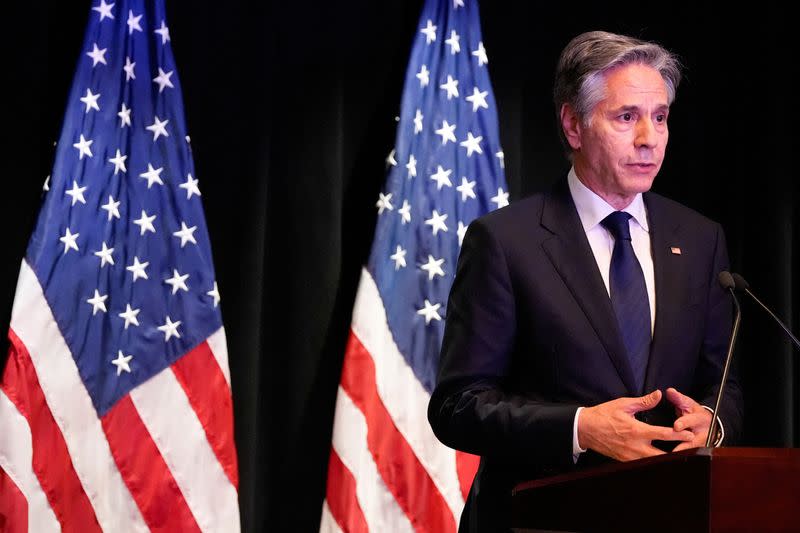U.S. chip bans not meant to hobble China's growth, Blinken says
By Stephen Nellis
(Reuters) - U.S. export controls on sending advanced computing chips to China are not meant to hold back China's economy or technological development, Secretary of State Antony Blinken said during an interview with National Public Radio on Friday.
Since 2022, U.S. officials have imposed sweeping controls on which computing chips can be exported to China, cutting off some sales from Nvidia, Advanced Micro Devices and Intel, among others. Those controls followed earlier bans on shipping chips to Huawei Technologies.
But U.S. officials have granted at least two U.S. companies - Intel and Qualcomm - licenses to keep shipping chips to Huawei, which is using an Intel chip to power a new laptop model. Two Republican lawmakers earlier this week criticized the exemption for Intel, but in the interview with NPR, Blinken highlighted the device as a sign the U.S. was not trying to hobble China.
"I saw that Huawei just put out a new laptop that it boasted was AI capable, that uses an Intel chip," Blinken told NPR host Steve Inskeep while visiting Beijing. "I think it demonstrates that what we're focused on is only the most sensitive technology that could pose a threat to our security. We're not focused on cutting off trade, or for that matter containing or holding back China."
Intel and Qualcomm's licenses to sell to Huawei were granted during President Donald Trump's administration and have remained in place under President Joe Biden. Those companies' direct competitors, AMD and MediaTek, have not received similar exemptions, and neither the Trump nor Biden administrations have explained why.
(This story has been refiled to fix Antony Blinken's name in paragraph 4)
(Reporting by Stephen Nellis in San Francisco; Editing by Sandra Maler)

 Yahoo Finance
Yahoo Finance 

